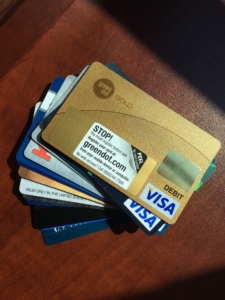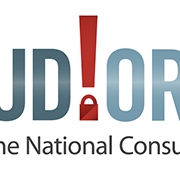February 6, 2020
“The Unsavory side of ‘Food with Integrity.’ ” report details management practices that lead to worker abuses and call into question protocols Chipotle put in place after recent food safety crises
Media contact: National Consumers League – Carol McKay, carolm@nclnet.org, (412) 945-3242 or Taun Sterling, tauns@nclnet.org, (202) 207-2832
New York — After dozens of outbreaks of food borne illness incidents over the past four years, Chipotle gave lip service to reforms in their work practices, but the fast-casual restaurant has continued to engage in management practices that lead to abuses of workers that may create food safety risks for consumers, a new study says.
Scores of employees interviewed for the study reported management pressure to work fast without following proper food safety procedures, such as:
- One worker being pressured to work while sick, even after the worker vomited part way into his shift;
- Undercooked chicken being served to a customer because the grill cook out in place had not been properly trained;
- Workers pressured to work so fast that during lunch and dinner rushes, they often flipped over chopping boards used to cut raw meat, and reused the boards without washing them;
- One worker who cooked food had to clean feces off the floor or ceiling of a bathroom multiple times without hazmat suit or adequate protection equipment;
- Pressure to work without stopping, with no time left to wash their hands for hours on end.
In the report, “The Unsavory Side of ‘Food with Integrity,'” workers told researchers that their managers often knew when supposedly independent audits were coming because other managers or field leaders who have undergone inspection often tip them off. Workers reported that managers relax rules outside of inspection periods and tightened up adherence to food safety protocols when inspections are imminent.
“The findings of this report call into question the effectiveness of measures that Chipotle put in place to solve their food safety crises of a few years ago,” said Sally Greenberg, executive director of the National Consumers League, which co-authored the report. “If Chipotle executive management and the Food Safety Advisory Council are responsible for making sure that this program is implemented effectively to keep the public safe, they have been asleep at the wheel.”
The National Consumers League, America’s pioneering consumer advocacy organization which has been representing consumers and workers on marketplace and workplace issues since their founding in 1899, undertook the study after SEIU Local 32BJ brought the organization information from field organizers about what were learning about practices that could affect consumer food safety from Chipotle workers they were supporting in their organizing efforts.
Organizers and researchers spoke to hundreds of workers, then undertook formal interviews with 47 workers at 25 stores in New York City. These interviews and statements form the basis of the report, which also included analysis of a variety of corporate filings, press reports, and other publicly available documents.
“We chose to blow the whistle on these practices and abuses because our Chipotle managers did not listen to us,” Jeremy Espinal, a Chipotle worker, said. “It’s a pressure-packed workplace where supervisors intimidate you and retaliate against you.”
“I am speaking out because I want to make Chipotle a better place to work and a better place for customers to eat,” Jahaira Garcia, another Chipotle worker, said. “This job is how I support myself, how I help my father out with expenses at home and how I am able to partly pay for my school fees.”
32BJ President Kyle Bragg thanked the National Consumers League for working with the union and thanked the workers for their courage.
“I believe that these workers are Chipotle’s best assets,” Bragg said. “They can put the integrity back into ‘food with integrity.’ Give them a voice on the job and they will help Chipotle achieve the lofty ideals of its marketing.”
Report findings include:
- Managerial pay incentives that promote cutting food safety corners: managers can earn up to an additional 25% of base pay by meeting performance goals that include reducing labor costs, creating a highly pressurized work environment. This bonus program may incentivize managers to meet productivity goals by cutting corners on food safety or by violating worker protection laws.
- Ineffective store audits: Worker interviews revealed that general managers frequently know when supposedly independent audits are coming because other managers or field leaders who have been inspected often tip them off. Workers reported that managers have relaxed rules following outside of inspection periods and tightened up adherence to food safety protocols when an audit is imminent.
- Pressure to work sick: New York-based workers reported that managers have pressured crew members to work while sick or retaliated against workers for taking paid sick leave.
- Minimal training: Despite the substantial skills needed to safely prepare Chipotle’s fresh food menu, many new hires receive minimal training and “learn as they go” from co-workers who may not have received much training themselves.
“As chairman of the New York City Council Public Health Committee, this is deeply troubling to me,” said New York Councilmember Mark Levine. “Risk of contagion should not be aggravated by an aggressive incentive structure that encourages managers to abuse workers and cut food safety corners. The public needs to know more and Chipotle needs to change their policies. That is why I am calling for a public hearing in the Council. I encourage Chipotle workers and consumers to come forward to discuss these issues. I also invite the company to be there to engage in this conversation.”
Nick Freudenberg, distinguished professor of Public Health at the CUNY Graduate School of Public Health & Health Policy and Director of the CUNY Urban Food Policy Institute, discussed Chipotle’s history of food borne disease outbreaks.
In 2015 and 2016, Chipotle was rocked by a series of food safety crises that sickened hundreds of customers across the country and included exposure to virulent pathogens like E. coli, salmonella, and norovirus, resulting in vomiting, pain, and in some cases hospitalizations. Despite claiming major food safety reforms instituted in 2016 to recapture consumer confidence, the company continued to have food-borne illness problems in 2017 and 2018, including an Ohio outbreak in which 647 people were sickened.
Despite Chipotle implementing an “enhanced food safety program” in 2016, the City’s Department of Health found 260 critical violations at 74 out of 84 restaurants from 2017 to 2019. Critical violations are those most likely to pose “a substantial risk to the public’s health” and lead to food-borne illness. The critical violation examples found by health inspectors include food left at dangerous temperatures that allow for the growth of pathogens, practices that allow for the contamination of ready-to-eat foods, evidence of various pests, and stores supervised by managers without a certificate in food protection. Just two weeks ago, the City cited a Chipotle restaurant where they found a crewmember working while “ill with a disease transmissible by food or [an] exposed infected cut or burn on [their] hand”.
Worker advocates and community groups were surprised by the findings and expressed support for Chipotle workers:
“Chipotle has not only acted duplicitously—championing a mission of integrity and freshness in public while speeding up production and cutting corners behind the counter—the company has created added risks for workers and consumers in the pursuit of profits,” said Ana Maria Archila of the Center for Popular Democracy. “Outlined in this report are issues that range from cautionary to alarming. Will Chipotle wait for another outbreak before they take corrective action—or will they take action ‘with integrity’ now to reduce potential harm?”
“This report is vital to understanding that the exploitation of workers in the food industry does not just impact workers and their families, it impacts everyone, including consumers,” Suzanne Adely of the Food Chain Workers Alliance said. “Chipotle and all food service workers deserve fair working conditions. Denying them basic, humane rights like sick days, proper healthy and safe working spaces, cannot be justified. Exploiting food workers for profit does not only harm workers and their families, it harms everyone, including consumers.”
“Chipotle is another example of worker safety and consumer safety being undermined together,” said Charlene Obernauer of the New York Committee for Occupational Safety and Health (NYCOSH). “Chipotle has a legal responsibility to provide a safe and healthy workplace and they need to take the appropriate steps to make this possible.”
“This report details how Chipotle’s low-road labor standards and incentives for managers to cut corners are endangering the dining public,” said Paul Sonn, State Policy Program Director for the National Employment Law Project. “Chipotle needs to recognize that investing in its workforce with stable, quality jobs is essential for delivering a safe and healthy dining experience for its customers.”
“We are deeply concerned with the workplace issues, especially that of forced arbitration described by Chipotle workers in this study,” Deborah Axt of Make the Road said. “We stand with Chipotle workers, the majority of whom are workers of color and many of whom are from communities like the ones our members are from, in calling for company-wide reforms and a commitment to invest in a stable workforce.”
###
About 32BJ SEIU
With 175,000 members in 11 states, including 85,000 in New York, 32BJ SEIU is the largest property service workers union in the country.
About the National Consumers League (NCL)
The National Consumers League, founded in 1899, is America’s pioneer consumer organization. Our mission is to protect and promote social and economic justice for consumers and workers in the United States and abroad. For more information, visit www.nclnet.org.
 General Purpose Reloadable prepaid cards (GPR) are the fastest growing payment method in the country. They are increasingly popular with consumers who can’t qualify for traditional credit or debit cards or for those who need a convenient way to help them stick to a budget, since the cards generally can’t be overdrawn. While GPR cards have similar uses and even look nearly identical to credit or debit cards, consumers should know that there are important differences in terms of fees and consumer protections.
General Purpose Reloadable prepaid cards (GPR) are the fastest growing payment method in the country. They are increasingly popular with consumers who can’t qualify for traditional credit or debit cards or for those who need a convenient way to help them stick to a budget, since the cards generally can’t be overdrawn. While GPR cards have similar uses and even look nearly identical to credit or debit cards, consumers should know that there are important differences in terms of fees and consumer protections.




 It’s a stressful time for consumers across the United States, with businesses closed, schools shut down, and more than a hundred million citizens under shelter-in-place orders. Unfortunately, scammers see this emergency as an opportunity to defraud consumers of hard-earned money we will all desperately need in the weeks and months ahead.
It’s a stressful time for consumers across the United States, with businesses closed, schools shut down, and more than a hundred million citizens under shelter-in-place orders. Unfortunately, scammers see this emergency as an opportunity to defraud consumers of hard-earned money we will all desperately need in the weeks and months ahead.











